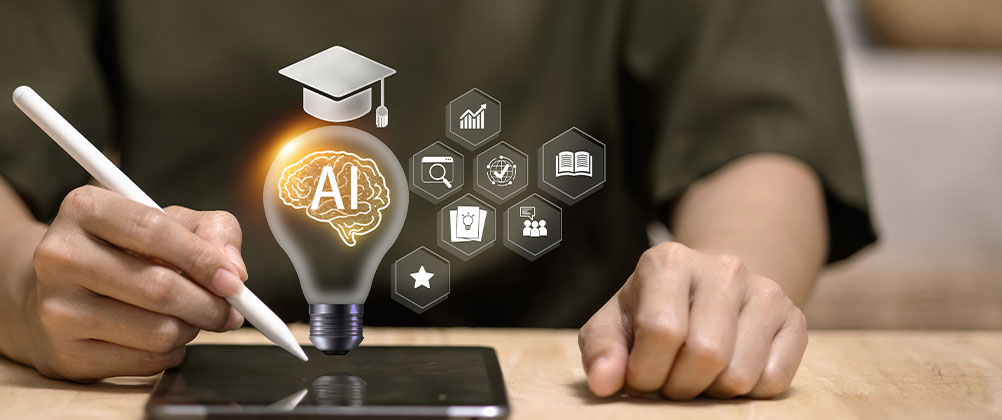Why New Employees Forget Training Fast — and How AI Powered Learning in Skill Lake Fixes It

65% of Employees Forget What They Learned in Their First 90 Days. This knowledge loss especially occurs with new employees who are loaded with information as soon as they join a company. They face heavy learning demands with very little reinforcement or real-world context to support what they learn. The result? Low confidence, repeated errors, and a drop in engagement.
Modern workplaces can’t afford this gap. Productivity, satisfaction, and retention depend on how well employees retain and use knowledge. Many training models fail to support this. Organizations need to adopt AI-powered learning — a smarter and more adaptive way to help employees remember and grow.
Skill Lake LMS stands at the forefront of this transformation. It’s an AI-based learning platform designed to support every learner. It helps employees adapt skills, stay engaged, and perform better.
Why 65% of Employees Forget What They Learn — The Science Behind It
The challenge of retention depends on how the human brain processes information. According to a study, learners forget 70% of new information within a day. So, regular support helps them retain what they’ve learned. In the workplace, this problem is magnified by
- Information overload: Onboarding programs turns weeks of material into a few days.
- Lack of practice: Employees understand the concept, but rarely get a chance to apply it randomly.
- Minimal feedback: Without proper guidance, mistakes become practice.
- Poor course sequencing: Courses are not listed or organized accurately, so employees don’t know what to learn first or next.
Learning should be continuous and adaptive to each employee’s performance. Most traditional training methods fail to do so. AI-powered learning tools, on the other hand, make it possible by tracking behavior and knowledge in different ways.
Why Traditional Training Models Are Failing Modern Learners
Traditional training models were built for a different time. They focused on classrooms and long PowerPoint sessions. These methods are no longer practical in today’s business world. Let’s look at why these models fail today’s learners.
- Low engagement: Employees lose interest during long sessions. They stay engaged when the content connects to real-world challenges.
- Limited accessibility: Limited access and static content make it hard for employees to learn on a mobile device.
- One-size-fits-all: A uniform training approach doesn’t meet employees’ different learning speeds or learning styles.
- No reinforcement: Once training ends, there’s little follow-up to test recall or retention.
These flaws create a cycle of “learn and forget.” Employees attend sessions, pass assessments, and then lose most of the knowledge within weeks. This cycle wastes organizational resources and undermines performance.
To break it, learning must be continuous, data-driven, and interactive. That’s exactly what AI powered learning management platforms like Skill Lake deliver. They build a learning environment that adapts to each user. It understands individual needs and helps knowledge stay longer.
How AI Transforms Engagement and Learning Retention
Artificial Intelligence has completely transformed how organizations deliver learning experiences. AI-powered learning builds a dynamic system. It makes learning more effective for each learner. Here’s how!
- Personalized Learning Paths
AI tailors the learning journey to each employee. It studies each role, performance level, and skill gap. Then it creates a personalized learning path that stays relevant and effective.
Each learner has a unique route. So, they can get exactly what they need. - Smart Content Recommendations
Employees don’t need to search for courses on their own. AI automatically creates the right learning materials for them. Such AI-powered recommendations keep the content relevant and engaging. - Quick Assessments & Performance Evaluation
LMS software with AI capabilities can also be utilized to draft assessments and test questionnaires based on course content or the targeted audience. This helps mentors evaluate skills faster and identify gaps, ensuring improved training approaches. - AI-Driven Role Play
AI-driven role play allows employees to practice real situations in a safe and realistic way. It gives instant guidance and adapts to their skill level. This helps them build confidence and improve skills faster. It helps employees who need to improve communication, decision-making skills for long-term success.
How Continuous Learning Boosts Long-Term Knowledge Retention
Continuous learning boosts long-term knowledge retention. Employees revisit concepts often. They apply ideas in daily tasks. This steady practice sharpens skills. It also keeps information fresh. Learners build deeper understanding.
They recall knowledge when they need it. This approach supports growth and confident performance in real work situations every day.
AI-powered learning improves this approach with smart reinforcement. It identifies when a learner needs extra support and what type they need. When someone struggles, AI sends related content or a short challenge to strengthen memory. This keeps the learning alive and relevant.
Organizations that support continuous learning see better results and higher performance. Their teams adapt faster to change. Employees who feel valued stay longer and contribute with confidence.
Skill Lake: The AI-Powered LMS That Makes Learning Stick
Skill Lake LMS follows one simple idea — learning should create lasting performance. It uses a modern LMS design to make training engaging and effective. Advanced AI tools personalize, automate, and measure every learning experience.
Key advantages include
- Adaptive Learning Paths
- AI Role Play
- Gamified Learning
- Intelligent Analytics
- Smart Notifications
How Skill Lake LMS Can Reduce the Forgetting Curve in Onboarding
Overloaded information is mostly the reason why most learners face a low knowledge retention rate or knowledge loss. Skill Lake’s AI LMS addresses this head-on with its power-packed features.
Let’s check:
- Multiple Learning Modes: Learners can choose from instructor-led to self-paced, synchronous, and asynchronous learning modes.
- Learning Bytes: Learners can avoid information overload. Learners can consume large and complex content in tiny bites.
- AI features: AI course recommendation and content generation features keep learners in the loop of engaging learning with new and relevant content.
- Scenario-Based Role Play: This particular AI feature on Skill Lake strengthens soft skills and prepares employees for real conversations.
- Quick Feedback and Progress Analytics: Managers see exactly where learners stand, enabling quick intervention.
Skill Lake’s power-packed features let employees remember information and gain confidence quickly. It also speeds up employees’ time in the first 90 days.
Building a Learning Culture That Lasts Beyond 90 Days
Long-term learning success depends on culture. A strong learning culture keeps employees growing and improving. It motivates them to share their knowledge and use their new skills.
AI LMS platforms like Skill Lake give HR and L&D teams better tools to create engaging and data-driven programs. This allows HR to focus more on strategy, mentoring, and people growth.
The Future of Employee Learning Retention
The next generation of learning systems will be more immersive, conversational, and data-aware. AI powered LMS platforms will soon mirror real workplace situations and interactions. They will also detect emotions and deliver adaptive content instantly.
As AI grows smarter, it will do more than predict learning gaps. It will fill them through real-time interaction, coaching, and feedback. Systems like Skill Lake are already leading this change. Its AI- powered learning combines intelligence and personalized experiences for each learner. This makes it a powerful tool to support training management initiatives and employee retention strategies.
Conclusion: Use AI and Skill Lake To Make Learning More Meaningful
The 90-day forgetting curve is real, but it doesn’t have to define your workforce. With Skill Lake LMS, organizations can turn learning into a continuous, memorable experience.
Skill Lake uses personalization, analytics, and tools like AI Role Play. These features help employees learn faster. They also support better knowledge retention and performance. Employee learning retention doesn’t fade after onboarding—it grows through continuous practice.
When employees learn with purpose and context, they become confident contributors. When learning uses AI, it grows with them.
FAQs
- How does Skill Lake’s AI Role Play work?
It lets learners practice real-world workplace interactions with AI-driven responses. The system evaluates communication skills and provides feedback for improvement.
- Why is employee learning retention important?
Strong retention helps employees remember for a long time. It also improves performance and reduces training costs.
- How does Skill Lake help HR and L&D teams?
It offers real-time insights and automated assessments to guide learning. AI tools or an employee development software simplify employee development and help build a strong learning culture.
- What makes Skill Lake a modern LMS?
Its smart automation and adaptive learning paths create personalized experiences. AI-driven simulations make it a modern LMS built for today’s changing workplace.
Build a culture of continuous learning with Skill Lake’s state-of-the-art people development platform. Give your employees professional training to help them excel in their job roles and propel your business to greater efficiency and success.
Start Today

Anoop Kumar MS
Anoop Kumar MS, Product Manager of Fingent Global Solutions Pvt. Ltd., is an experienced product specialist with expertise in identifying customer needs and delivering innovative, data-driven solutions. Skilled in wireframing, UX, requirements analysis, risk assessment, team management, and root cause analysis, he excels in managing product lifecycles and fostering seamless collaboration to address real-world challenges.